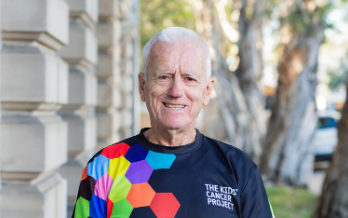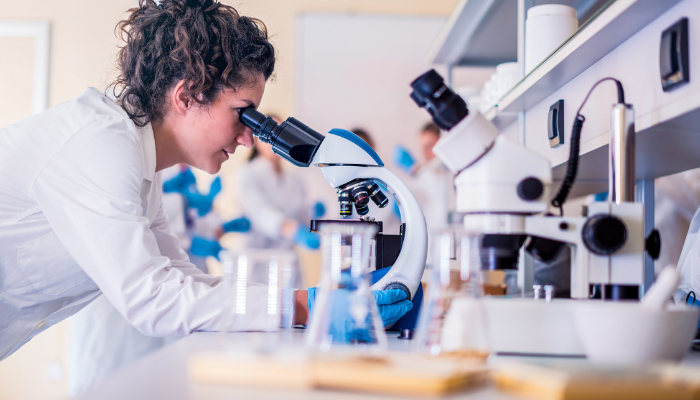
Recipient: Jacqueline Hunter
Institute: University of Melbourne
Funding: $30,000.00
Jacqueline Hunter is a PhD candidate at the University of Melbourne's Psychosocial Health and Wellbeing Research (emPoWeR) Unit and a research officer at the University of New South Wales (UNSW) Behavioural Sciences Unit (BSU). Her focus lies in psychosocial research related to genetic cancer predisposition and the use of whole genome sequencing technologies in childhood cancer. With a Bachelor's in Biomedicine and a Master's in Genomics and Health from the University of Melbourne, Jacqueline is dedicated to advancing cancer care which includes considering ethical implications and patient experiences.
Motivation
When I was 13 years old my brother was diagnosed with leukaemia. Watching him go through that experience I saw firsthand the impact of childhood cancer on a family. It motivated me to try and ease the high burden of distress families can experience. I wanted a career that would enable me to improve the support and care they receive. After graduating with a Masters of Genomics and Health at the University of Melbourne, in 2020 I joined the Ethics and Genetics team at the Behavioural Sciences Unit at UNSW and so began my research career. I am delighted to be working in a sector that explores the impact of genetics on families whose child has cancer as it’s an area that combines both my professional and personal interests.
Analysing genomic sequencing
Researchers have identified that around two in ten children with cancer are born with a genetic change that increases their cancer risk. We now have new technology that can quickly and accurately identify these changes, known as genomic sequencing. This information can guide treatment decisions and inform further testing and reproductive decision-making in the wider family. Children found to have an increased genetic cancer risk can also engage in cancer surveillance to identify new cancers at an earlier and more treatable stage.
However, there is still much we don’t know about the impact of genomic sequencing and ongoing cancer surveillance in children. This includes the optimal time to offer testing, the family's preferences for the return of genetic results, the impact of testing on family relationships and communication on their psychological well-being, the psychosocial impact of ongoing surveillance, and how to provide appropriate support to help families understand and address the implications of genomic sequencing findings.
Revolutionising cancer care
While genomic sequencing has the potential to revolutionise cancer care for children, it also presents significant challenges, including numerous psychosocial considerations for children and their families. By understanding families' first-hand experiences, including their understanding of the results and the potential psychosocial benefits or burdens, we can appropriately integrate this technology, balancing the clinical benefit of testing with the potential emotional and psychosocial impacts. This will ensure that medical advances in genetics, which have immense potential for cancer treatment and prevention, also translate into improved patient and family experiences, support, and overall quality of care.
Inspired to learn more
After completing my Masters degree and having worked as a research assistant for three years, completing a PhD felt like a logical next step. I knew I wanted to keep working in the research space and a PhD will further hone my research skills and help me gain valuable experience running and managing my study, with the support of some amazing supervisors.
My PhD project aims to address these challenges, by talking to families with a child with cancer who has undergone genomic sequencing, as well as families with an increased genetic cancer risk who are participating in surveillance. I will use questionnaires and interviews to collect data on families' experiences, which I will then analyse and write up as part of my PhD.
PhD top-up scholarship
I am so honoured and excited to be an inaugural recipient of the Col Reynolds PhD Top-Up Scholarship. This incredibly generous support means I will be able to devote more time to my studies, publish results in high-impact journals, present my results at influential conferences, and disseminate and advocate for my research on a national and international level. This research is deeply fulfilling for me and with this support I hope to be able to set myself up for an impactful career, making a meaningful difference in the lives of families affected by childhood cancer.
Thank you, donors!
I am so grateful to The Kids’ Cancer Project for providing researchers with the support they need to do the research they love. I am so lucky to be working in this space where there are such generous and passionate community donors who support and advocate for childhood cancer research. Your support is so appreciated by young researchers like me who are able to progress their studies and stay in the research space thanks to your donations!
Thank you too for acknowledging the significance of psychosocial research in childhood cancer. Your commitment goes beyond medical outcomes, enhancing the social and emotional wellbeing of families with a child with cancer.
Find out more about the Col Reynolds Fellowship
With an investment of over $7.6 million, The Kids’ Cancer Project is ensuring that some of the best and brightest young researchers in Australia can further their careers and most importantly, their impact on childhood cancer research.


Read more from past recipients
From a field of outstanding candidates across Australia, The Kids’ Cancer Project has funded the next generation of childhood cancer researchers. Their science-backed research is sure to deliver breakthroughs across a range of areas relating to childhood cancer.
